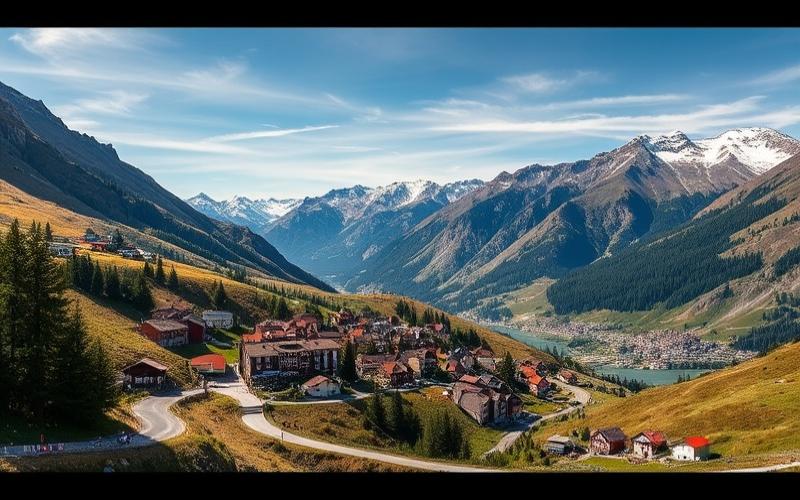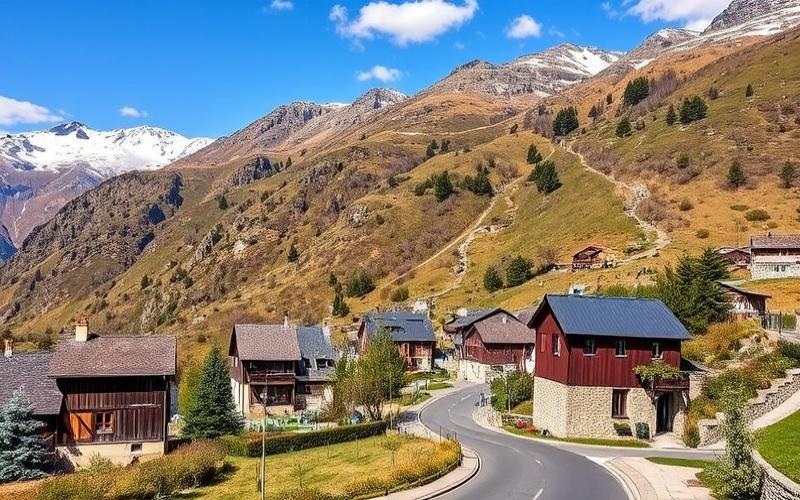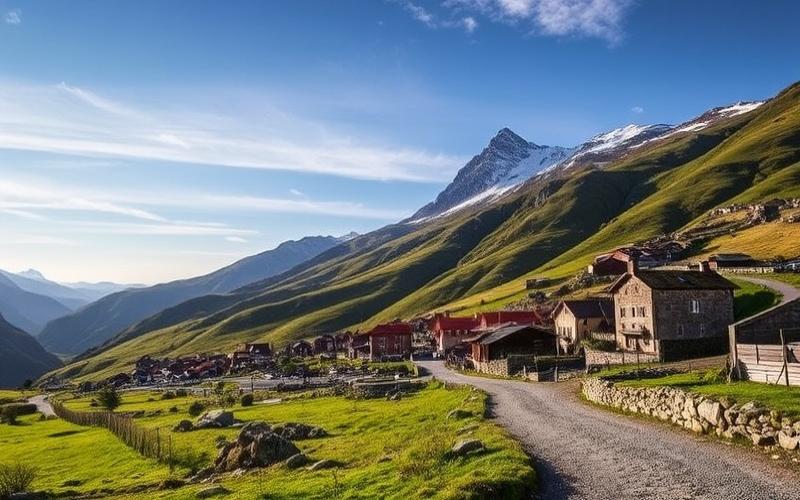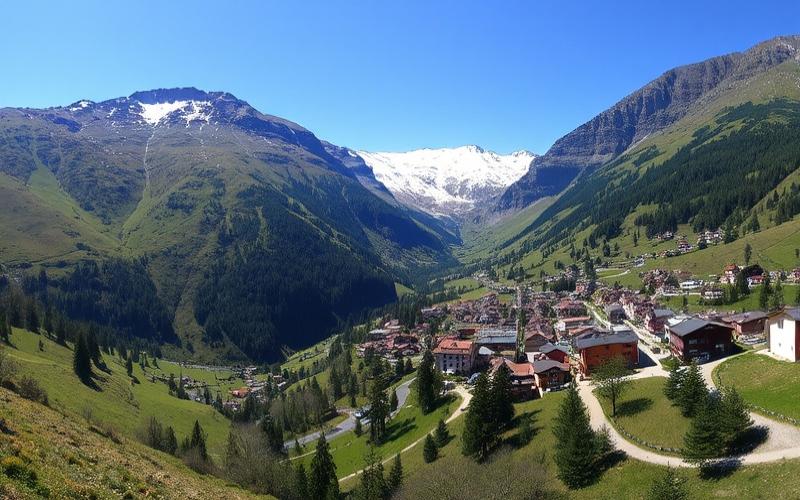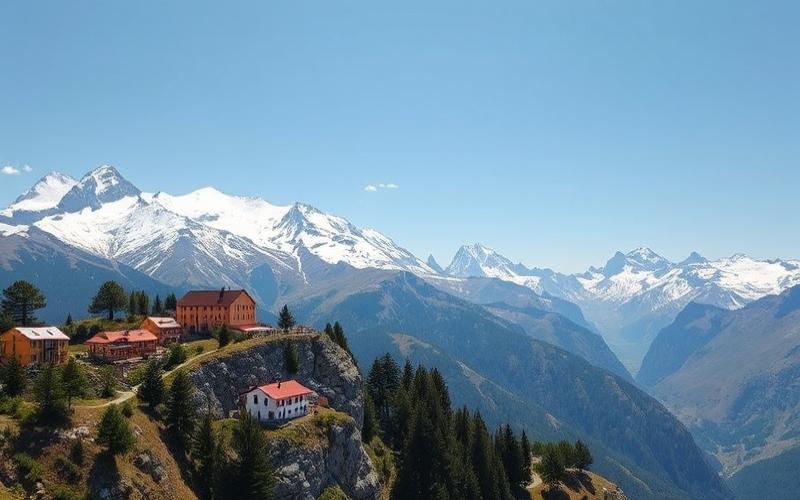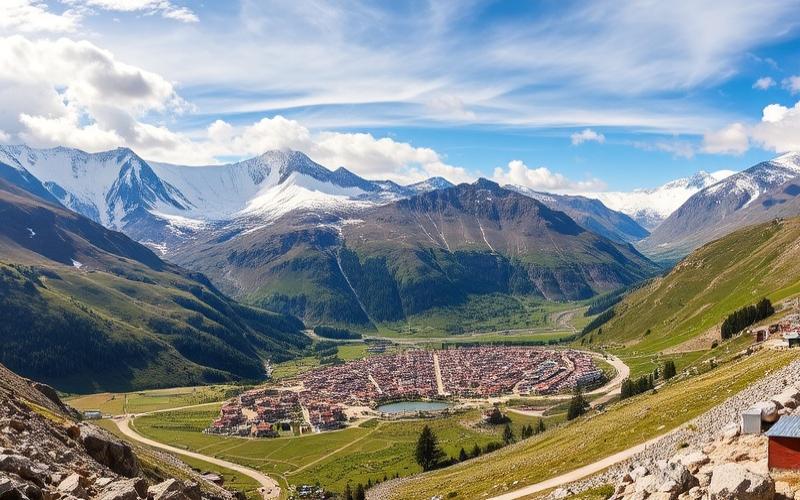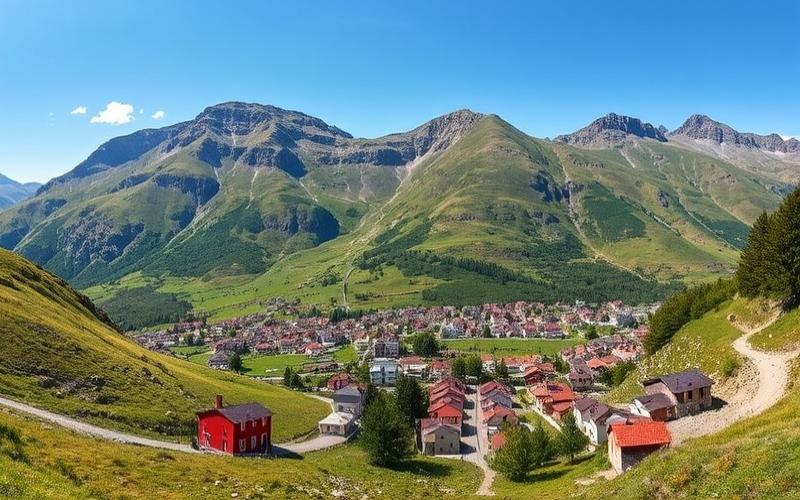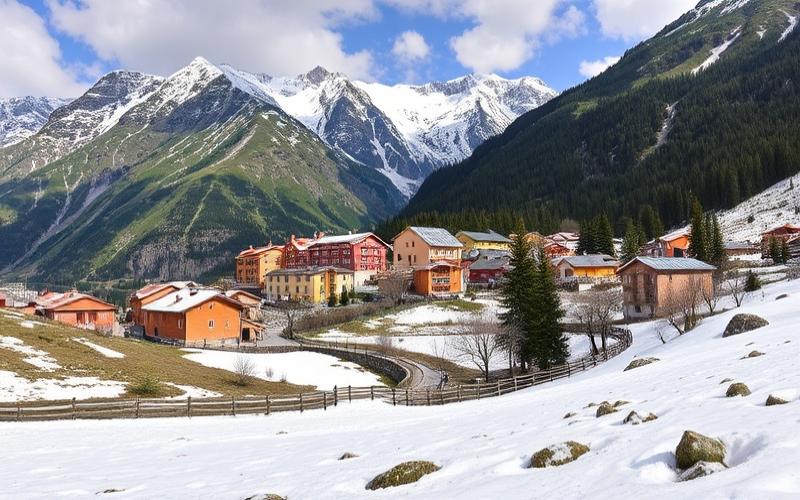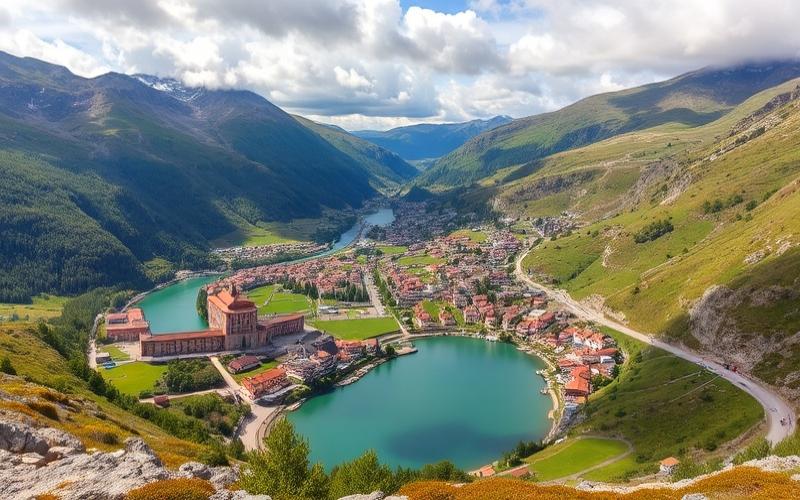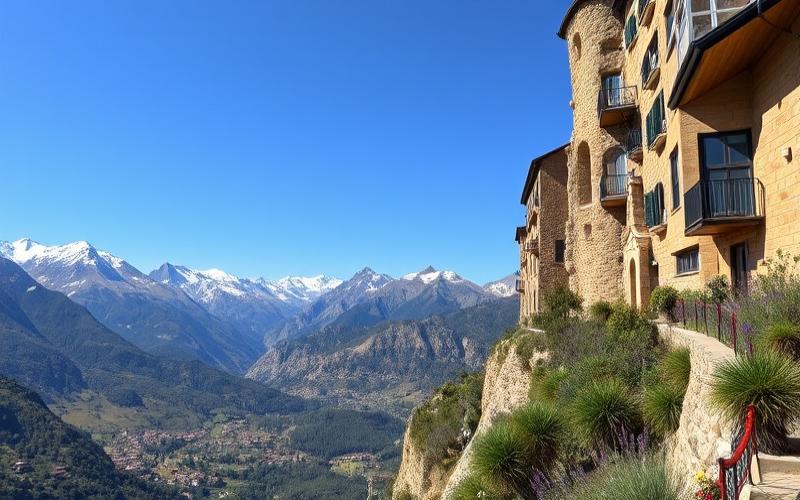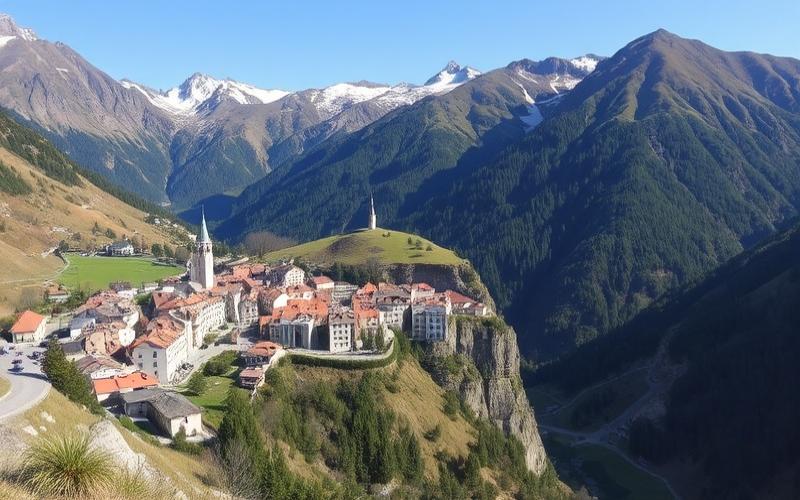
 Published on and written by Cyril Jarnias
Published on and written by Cyril Jarnias
Andorra, a small country nestled between France and Spain, is attracting more and more foreign investors thanks to its favorable tax framework and exceptional quality of life. However, before embarking on property acquisition in the Principality, it is crucial to fully understand the current laws and regulations. This article will guide you through the essential aspects to know for a successful real estate investment in Andorra in 2025.
The Andorran Dream Accessible to Foreigners: Acquisition Rights for Non-Residents
Good news for foreign investors: since 2012, Andorra has significantly relaxed its laws regarding property acquisition by non-residents. This opening of the Andorran real estate market to foreigners marked a major turning point in the country’s economic history.
Freedom of Purchase for All
Today, foreigners, whether residents or not, have the right to freely acquire real estate in Andorra. This market liberalization has significantly stimulated foreign investment in the country, contributing to the revitalization of the local economy.
Simplified Procedure
Although purchasing is now open to foreigners, prior authorization is still required. However, the procedure has been greatly simplified and generally does not constitute a major obstacle for serious investors. This authorization mainly aims to guarantee the legality of the transaction and prevent potential abuses.
Limited Restrictions
It is important to note that certain restrictions may apply, particularly for the purchase of agricultural land or properties with an area exceeding 900 m². These special cases require specific authorization from the Andorran government. However, for the vast majority of real estate investments, these restrictions do not apply.
Good to Know:
The liberalization of the Andorran real estate market has led to a significant price increase, particularly in the most sought-after areas. It is therefore recommended to thoroughly study the market before making an investment.
The legal framework governing real estate in Andorra is relatively simple and transparent, but it nevertheless includes some particularities that are essential for any potential investor to know.
The Horizontal Property Law
This law, similar to those in force in many European countries, governs the rights and obligations of owners in condominium buildings. It notably defines the rules for managing common areas and the decision-making procedures within the condominium.
The Residential Lease Law
Adopted in 2019, this law aims to protect tenants while guaranteeing the rights of owners. It notably sets the minimum duration of lease contracts (5 years for primary residences) and regulates rent increases.
The Land Use and Urban Planning Law
This law defines the construction and development rules in Andorra. It is particularly important for investors wishing to build or renovate a property. It notably sets construction standards, building permit requirements, and urban planning restrictions.
The Foreign Investment Law
Although Andorra has liberalized its real estate market, this law still regulates foreign investments in the country. It notably defines the sectors open to foreign investment and the necessary authorization procedures.
Good to Know:
It is highly recommended to hire a lawyer specialized in Andorran real estate law to assist you with your investment project. This will help you avoid many pitfalls and secure your acquisition.
The Andorran Tax Haven: Understanding Local Real Estate Taxation
Andorra is renowned for its advantageous taxation, and the real estate sector is no exception. However, it is important to fully understand the different applicable taxes and duties to optimize your investment.
Property Transfer Tax (ITP)
This tax, equivalent to transfer duties in France, amounts to 4% of the purchase price for real estate properties. It is payable by the buyer at the time of the transaction.
Real Estate Capital Gains Tax
In case of resale of a property, a tax on the realized capital gain applies. Its rate varies from 0% to 15% depending on the holding period of the property, with full exemption after 13 years of ownership.
Property Tax
Unlike many countries, Andorra does not levy an annual property tax on real estate properties. This represents significant savings for owners.
Tax on Rental Income
Income from property rental is subject to Personal Income Tax (IRPF) at a rate of 10%. This rate is particularly attractive compared to many European countries.
Municipal Tax on Real Estate Property
Although there is no national property tax, some Andorran municipalities levy an annual tax on real estate properties. Its amount generally remains modest, varying between 0.1% and 0.9% of the property’s cadastral value.
Good to Know:
Andorra has signed double taxation avoidance agreements with several countries, including France and Spain. This helps avoid double taxation of real estate income for investors residing in these countries.
The Owner is King: Understanding Your Rights as a Property Owner in Andorra
In Andorra, the rights of property owners are generally well protected by law. Here are the main points to know:
Absolute Ownership Right
Andorran law recognizes the right of absolute ownership, meaning the owner has full control over their property, subject to compliance with current laws and regulations.
Freedom to Rent
Owners have the right to rent their property, whether for long-term leases or short-term tourist rentals. However, it is important to respect the specific regulations for each type of rental.
Right of First Refusal
In the case of a sale of a property in a condominium, the other co-owners benefit from a right of first refusal. This right allows them to purchase the property on a priority basis, under the same conditions offered to a potential buyer.
Protection Against Squatters
Andorran law provides effective protection against illegal occupation of properties. Eviction procedures are generally quick and efficient.
Right to Build and Renovate
Owners have the right to build or renovate their property, subject to obtaining the necessary authorizations from the competent authorities.
Good to Know:
Although property owners’ rights are well protected in Andorra, it is always recommended to take out comprehensive home insurance to protect against potential damages or disputes.
The Evolution of the Real Estate Landscape: Recent and Upcoming Regulatory Changes
The regulatory framework for real estate in Andorra is regularly evolving to adapt to new economic and social realities. Here are the main recent changes and those to anticipate for 2025:
Strengthening of Energy Standards
Since 2023, Andorra has significantly strengthened its energy efficiency standards for new constructions and major renovations. These standards aim to reduce the carbon footprint of the Andorran real estate stock and improve occupant comfort.
Regulation of Tourist Rentals
Faced with the proliferation of short-term rentals via online platforms, the Andorran government implemented specific regulations in 2024 to oversee this activity. Owners wishing to offer their property for tourist rental must now obtain a license and comply with certain quality and safety standards.
Digitalization of Real Estate Procedures
In 2025, Andorra launched a vast program to digitalize administrative procedures related to real estate. This program aims to simplify and speed up processes for investors, particularly regarding building permits or transaction registration.
Draft Law on Passive Residence
A draft law, currently under discussion, could introduce a new “passive resident” status in Andorra. This status would be intended for foreign investors wishing to benefit from the country’s tax advantages without engaging in professional activity there. If adopted, this law could have a significant impact on the high-end real estate market.
Consideration of a Vacant Housing Tax
Faced with a shortage of affordable housing for the local population, the Andorran government is considering introducing a tax on vacant housing. This measure, if adopted, would aim to encourage owners to put their properties on the rental market.
Good to Know:
These regulatory developments demonstrate Andorra’s commitment to modernizing its legal framework while preserving its attractiveness to foreign investors. It is crucial to stay informed of these changes to optimize your real estate investments in the country.
Conclusion: Andorra, an Attractive but Cautiously Approached Real Estate Market
Andorra undeniably offers an attractive framework for real estate investment, with advantageous taxation, simplified procedures for foreigners, and a growing market. However, as with any foreign investment, it is crucial to approach the Andorran market with caution and to thoroughly research local specificities.
Understanding real estate laws and regulations is essential for a successful investment in Andorra. Whether you wish to acquire a secondary residence, a rental property, or commercial premises, in-depth knowledge of the legal and tax framework will allow you to make informed decisions and maximize your investment’s potential.
Remember that the Andorran real estate market, although dynamic, remains relatively small and can be subject to significant fluctuations. A thorough market analysis, coupled with advice from local experts, will help you identify the best opportunities and avoid potential pitfalls.
Finally, keep in mind that Andorra, beyond its tax advantages, offers an exceptional quality of life, a preserved natural environment, and enviable political and economic stability. These factors contribute to making real estate investment in Andorra a particularly attractive option for those seeking to combine financial returns and quality of living.
Disclaimer: The information provided on this website is for informational purposes only and does not constitute financial, legal, or professional advice. We encourage you to consult qualified experts before making any investment, real estate, or expatriation decisions. Although we strive to maintain up-to-date and accurate information, we do not guarantee the completeness, accuracy, or timeliness of the proposed content. As investment and expatriation involve risks, we disclaim any liability for potential losses or damages arising from the use of this site. Your use of this site confirms your acceptance of these terms and your understanding of the associated risks.










